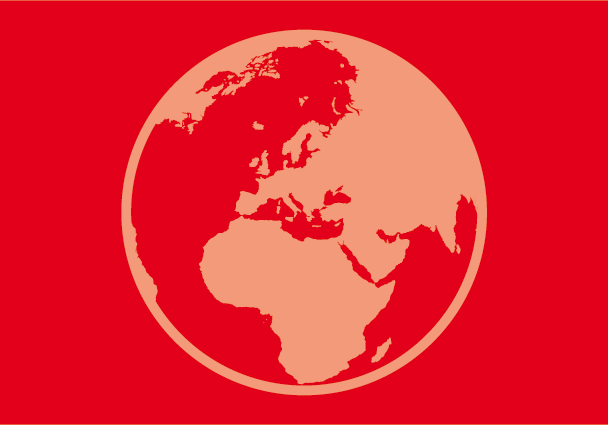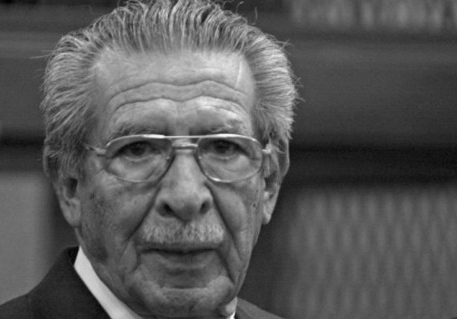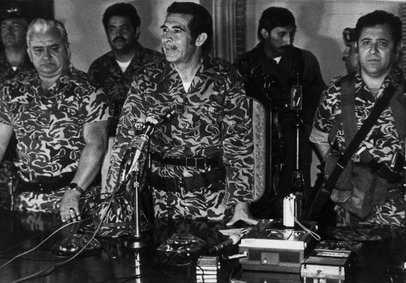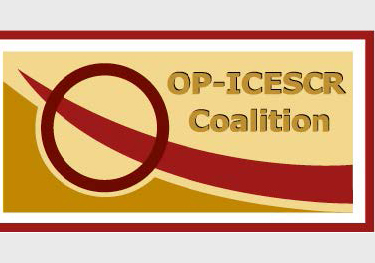
Nov 29, 2013 | Advocacy, Non-legal submissions
The ICJ’s Director of the International Law and Protection Programmes, Alex Conte, today delivered the keynote address at the launch of the OSCE manual on Human Rights in Counter-Terrorism Investigations.
Responding to the challenges faced by some OSCE participating States in operationalizing human rights when conducting counter-terrorism investigations, the OSCE Office for Democratic Institutions and Human Rights (ODIHR) and the OSCE Secretariat’s Transnational Threats Department / Strategic Police Matters Unit jointly developed a manual on Human Rights in Counter-Terrorism Investigations. The manual adopts an operational approach to different phases of counter-terrorism investigations and linking them to relevant human rights standards.
The keynote address focussed on the link between human rights protection and effective counter-terrorism practices; and on how human rights are themselves useful tools to successfully prevent and counter terrorism. It identified five law, policy and practical reasons that human rights compliance is required and/or contributes to the prevention and countering of terrorism:
- Human rights compliance while countering terrorism is an international obligation, recalling that States’ right and duty to combat terrorism is part of international and regional human rights law stemming from the duty of States to protect individuals under their jurisdiction from interference with their enjoyment of human rights, including the rights to life and security;
- Human rights compliance at the investigative stage of counter-terrorism cases means that there will be an exponentially greater chance that the precious resources dedicated to terrorist investigations will result in the admissibility of evidence;
- Human rights compliance at the investigative and pre-trial stages of counter-terrorism cases (considering the impact of prolonged detention without trial or without charge) gives rise to a greater prospect of achieving a sound conviction;
- Bringing perpetrators of terrorist acts to justice through effective (i.e. human rights-compliant) investigation and prosecution contributes to the realisation for victims of terrorism of their rights to truth and reparation; and
- Human rights compliance not only assists the short-term objectives of effective counter-terrorism investigations and prosecutions, but is also the essential basis for a sustainable, long-term approach to the countering of terrorism by avoiding further conditions conducive to the spread of terrorism.
ICJ-OSCE-ManualOnHumanRightsInCounterTerrorismInvestigations-LaunchEvent-KeynoteAddress-NonlegalSubmission-2013 (download keynote address in PDF)
OSCE_HRCT_Manual (download manual on Human Rights in Counter-Terrorism Investigations in PDF)

May 16, 2013 | News
La CIJ hoy expresó su preocupación ante la posibilidad de que la sentencia emitida días atrás por el Juzgado de Mayor Riesgo A en el juicio por Genocidio y Delito contra los Deberes de Humanidad sea anulada.
La CIJ tambien expresó su preocupación que el proceso contra el General Efraín Rios Montt (photo) por Genocidio y Delitos contra los Deberes de Humanidad tenga que repetirse.
La Corte de Constitucionalidad (CC) está examinando recursos legales planteados relacionados a la sentencia de 80 años de cárcel contra el exjefe de Estado.
Durante todo el juicio, los jueces del Tribunal recibieron presiones constantes, no solo de parte de los abogados de la defensa, sino que también de otros grupos externos que promueven más impunidad en este caso, dijó la CIJ.
Además, constantemente los abogados de la defensa presentaron diferentes recursos de amparo y otros recursos legales, con el único fin de obstaculizar el proceso y no permitir que se emitiera sentencia.
Frente a todos estos ataques, los jueces del Tribunal de Mayor Riesgo A demostraron una conducta intachable, apegada a derecho y con una firme determinación de terminar con la impunidad que ha existido alrededor de este caso.
Ramón Cadena, Director de la Oficina de la Comisión Internacional de Juristas para Centro América expresó: “Sería muy negativo para el Estado de Guatemala si se llega a anular la sentencia. La impunidad que ha existido ha hecho mucho daño a la población y a las víctimas quienes habían perdido la fe en la justicia.”
Finalmente, Cadena puntualizó: “Es más valioso que un Estado reconozca mediante una sentencia que se cometieron graves crímenes de guerra, de lesa humanidad y genocidio, a seguir escondiendo su responsabilidad con diferentes mecanismos de impunidad.”

May 10, 2013 | News
La CIJ celebra que el proceso contra el General Efraín Rios Montt (center on the photo) por Genocidio y Delitos contra los Deberes de Humanidad haya concluido el viernes 10 de mayo en la ciudad de Guatemala.
La CIJ observó el debate por medio del abogado Miguel Moerth y apoyó proceso y el debido cumplimiento del Derecho Internacional de los Derechos Humanos y del Derecho Internacional Humanitario por medio del peritaje presentado por el Director de su oficina para Centroamérica.
Dicha oficina se ha mantenido atenta y ha abogado por el derecho de las víctimas a la verdad y la justicia.
Durante el proceso la CIJ llamó la atención sobre el uso abusivo de la figura del amparo, recusaciones, incidentes y otros recursos presentados por la defensa que pretendieron en diferentes momentos anular u obstaculizar el desarrollo del juicio.
La CIJ respalda decididamente al Tribunal de Mayor Riesgo “A” por haber llevado a cabo su difícil tarea, con respeto a las normas del debido proceso y la garantía del derecho de defensa de los acusados y, por haber resistido con las presiones recibidas durante el juicio, que incluyeron amenazas contra integridad personal de miembros del Tribunal.
La CIJ considera que el derecho de las víctimas a un juicio justo e imparcial y a conocer la verdad de los hechos, ha sido respetado con las acciones llevadas a cabo durante el juicio por dicho Tribunal.
Wilder Tayler, Secretario General de la Comisión Internacional de Juristas expresó: “Celebramos este triunfo de la Justicia sobre la Impunidad. Después de 30 años y de tanto esfuerzo, el derecho a la justicia de las víctimas ha sido respetado; la sociedad guatemalteca ha dado un primer y muy importante paso en el camino hacia la reconciliación. Esta sentencia fortalece el Sistema de Justicia en Guatemala y constituye un importante precedente para evitar que crímenes tan graves puedan repetirse. Constituye igualmente un ejemplo para toda la región americana en su combate contra la impunidad”.
Photo: Bettman/Corbias

May 3, 2013 | Multimedia items, News, Video clips
The ICJ warmly welcomes the entry into force of the Optional Protocol to the ICESCR that will be effective on Sunday, 5 May, 2013.
As noted in previous statements, the ICJ considers that the entry into force of the new instrument allowing the review of alleged violations of economic, social and cultural rights by a UN Committee will mark an historic boost to the international protection of these rights.
The ICJ and its allies in the International NGO Coalition for the OP-ICESCR look forward to pursuing the dialogue and interaction with the UN Committee on Economic, Social and Cultural Rights and States parties, and aim to contribute at making the new procedures offered an effective tool for victims who could not achieve justice in their domestic justice systems.
Coalition press release in English
Coalition press release in Spanish

Apr 25, 2013 | News
The ICJ calls on the Egyptian authorities to take immediate steps to guarantee the rights of victims of human rights violations to an effective remedy and to reparation for the serious harm many have suffered.
The authorities should initiate, as a matter of the highest priority, prompt, thorough, independent and impartial investigations into past and ongoing human rights abuses, including cases of arbitrary detention, torture and ill-treatment, and extrajudicial and other unlawful killings.
The statement comes as the ICJ concludes a high-level mission to address the human rights situation in Egypt and to examine the measures being taken by the authorities to address both the legacy of human rights abuses and to ensure accountability for them.
“The Egyptian authorities should ensure that the pattern of widespread and systematic human rights violations committed under the former regime is not repeated. This will involve the comprehensive reform of State institutions and the revision of the national legal framework with a view to ensuring that the rights of victims are safeguarded in line with international standards,” said Justice Kalthoum Kennou, ICJ Commissioner and member of an ICJ mission to Egypt. “Such reforms should target the police and security forces, the Office of the Public Prosecutor, the Forensic Medicine Office and the judicial system as a whole, including by restricting the jurisdiction of the military justice system to exclude civilians and all cases involving human rights violations.”
The ICJ notes that current reparation programmes, established by the government, have a restricted mandate, which has resulted in the arbitrary exclusion of numerous victims and their families from these programmes. They also do not ensure the accessibility of the range of reparations required under international law. Most importantly, such programmes have failed so far to ensure accountability for past and ongoing human rights violations.
“The very few proceedings against State officials have resulted in acquittals or sentences that are not commensurate with the gravity of the crimes committed. In order to end this cycle of impunity, the Egyptian authorities must hold those responsible for gross human rights violations accountable through criminal prosecutions,” said Alejandro Salinas, a Chilean lawyer and member of the ICJ mission. “They should also establish a transitional justice mechanism with sufficient guarantees of independence and with a comprehensive mandate to address the legacy of past and present human rights abuses, while ensuring that impunity does not become entrenched.”
The delegation was led by ICJ Commissioner, Justice Kalthoum Kennou, and Alejandro Salinas, and was supported by ICJ legal advisers, Alice Goodenough and Marya Farah. The delegation met with the then Minister of Justice, Ahmed Mekki, Justice Adel Omar Sherif of the Supreme Constitutional Court, the President and Secretary-General of the National Council for Human Rights, Hossam Al Gheryani and Abdallah El Ashaal, the Director of the National Council for the Care of the Revolution’s Martyrs, Families and Wounded, Khaled Badwy, the Vice President of the Court of Cassation and Secretary General of the High Judicial Council, Justice Mohamed Mahgoub, Chairman of the Human Rights Committee of the Shura Council, Ehab Kharrat, members of the judiciary, the legal profession and civil society, as well as a number of victims, and the families of victims of human rights violations committed before and after the departure of former President Mubarak.
Contact:
Said Benarbia, ICJ Senior Legal Adviser of the Middle East and North Africa Programme, tel: 41 22 979 38 17, e-mail: said.benarbia(a)icj.org
Egypt-ICJ calls auhorities-Press release-2013-Arabic (full text in PDF)









